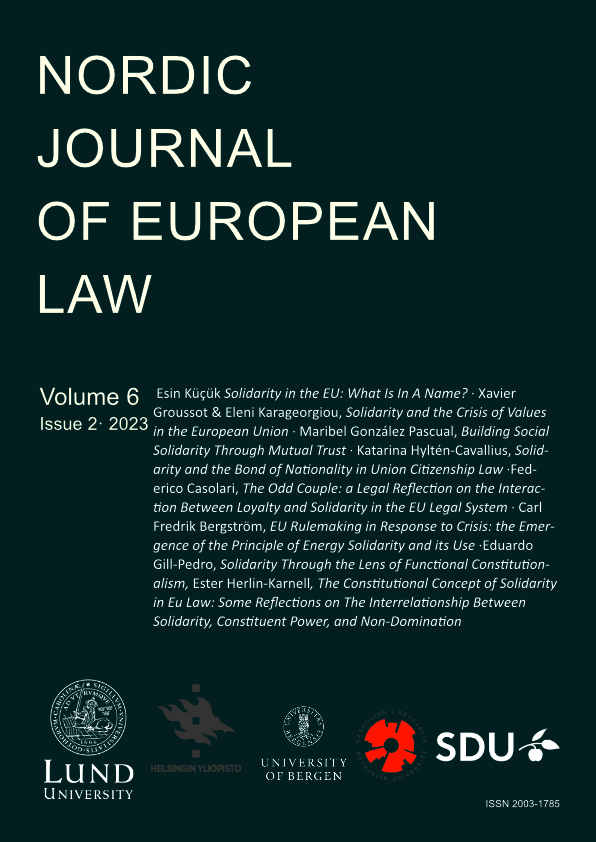Solidarity Through the Lens of Functional Constitutionalism
Main Article Content
Abstract
This article investigates solidarity as a concept and/or a norm of EU law from the perspective of functional constitutionalism. It asks how solidarity fits within the normative framework of the EU legal order if we understand this framework as being founded on a functional constitution. Under functional constitutionalism, the EU is understood as a purposive polity and the authority of the legal order is justified, not by reference to popular sovereignty and individual rights, but from the functional requirements ordained by the purposes, or objectives, of that polity. From this perspective, the normative value of solidarity in EU law is contingent on effectiveness. Where the effective achievement of EU objectives requires Member States to act in solidarity to each other, or to exercise transnational solidarity towards citizens of other Member States, then EU law will impose a duty on them to do so. Conversely, if the exercise of national solidarity within the Member State undermines the effective achievement of EU objectives, then EU law will impose a duty on those Member States not to allow such exercise. The article concludes that, through the lens of functional constitutionalism, solidarity has a purely instrumental value within the EU normative order.
Article Details

This work is licensed under a Creative Commons Attribution-NonCommercial-NoDerivatives 4.0 International License.

